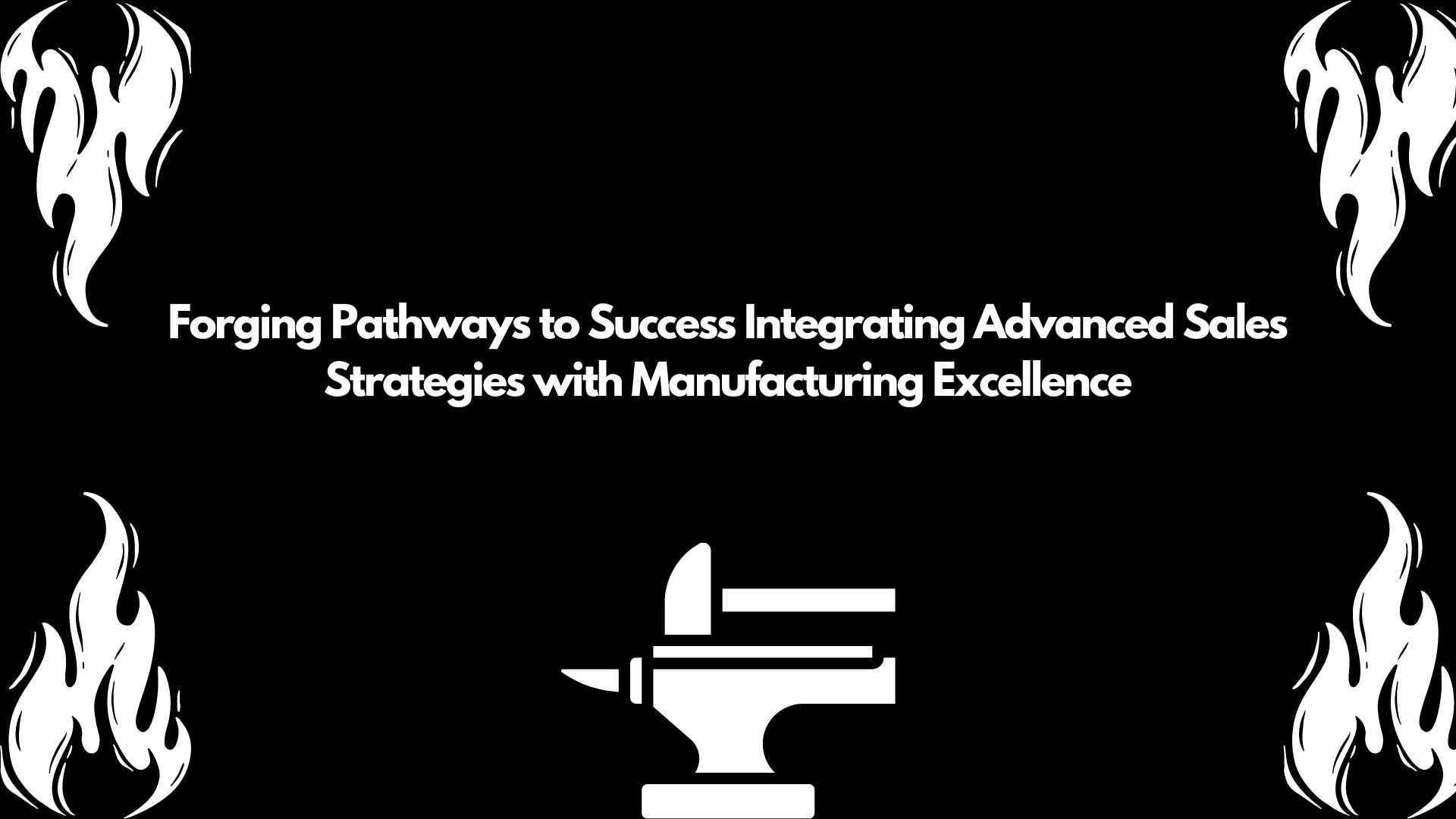In today’s competitive landscape, the convergence of manufacturing efficiency and sales prowess is more crucial than ever. Manufacturing companies that harness advanced sales strategies alongside operational excellence are setting new benchmarks for success. This blog explores how integrating cutting-edge sales techniques with manufacturing processes can create a powerful synergy that drives growth and enhances profitability.
The Intersection of Sales and Manufacturing
Manufacturing and sales might seem like distinct functions, but their interplay is vital to a company’s overall success. Effective sales strategies can drive demand, while manufacturing efficiency ensures that this demand is met promptly and cost-effectively. By aligning these two critical areas, companies can achieve a seamless flow from product creation to market delivery.
Embracing Advanced Sales Strategies
- Data-Driven Decision Making: Leveraging analytics to understand market trends, customer preferences, and sales performance is crucial. Advanced sales strategies often involve sophisticated CRM systems that provide real-time insights, enabling sales teams to make informed decisions and tailor their approaches to meet evolving customer needs.
- Personalized Customer Engagement: In the era of personalization, sales teams must go beyond generic pitches. Implementing advanced tools for customer segmentation and targeting allows for more personalized interactions, enhancing the likelihood of conversion and fostering long-term relationships.
- Integrated Sales Platforms: Utilizing integrated sales platforms that connect with manufacturing systems can streamline processes. For example, an integrated ERP (Enterprise Resource Planning) system can synchronize sales forecasts with production schedules, ensuring that manufacturing aligns with market demand.
Enhancing Manufacturing Excellence
- Lean Manufacturing Principles: Adopting lean manufacturing techniques helps in reducing waste and improving efficiency. By continuously analyzing and optimizing production processes, manufacturers can achieve higher quality products and faster delivery times, which, in turn, supports more effective sales efforts.
- Automation and Technology: Investing in automation and modern manufacturing technologies can significantly boost productivity. Automated systems can increase precision, reduce errors, and speed up production, aligning with sales teams’ needs for quick turnaround times and consistent product quality.
- Collaboration and Communication: Effective communication between sales and manufacturing teams is essential. Regular meetings and collaborative tools can ensure that sales forecasts, market insights, and production capabilities are aligned, leading to better planning and execution.
Crafting a Unified Strategy
To forge a successful path forward, manufacturing companies should:
- Establish Clear Objectives: Define shared goals between sales and manufacturing teams to ensure that both are working towards common targets.
- Invest in Training: Equip both sales and manufacturing staff with the skills and knowledge to leverage new technologies and strategies effectively.
- Monitor and Adjust: Continuously track performance metrics and adjust strategies as needed to respond to changing market conditions and operational challenges.
Conclusion
Integrating advanced sales strategies with manufacturing excellence is not merely about improving individual functions; it’s about creating a cohesive strategy that drives overall success. By embracing data-driven sales approaches, enhancing manufacturing efficiency, and fostering collaboration between teams, companies can forge a pathway to sustained growth and profitability. The future belongs to those who can seamlessly blend innovation in both sales and manufacturing to meet the demands of a dynamic marketplace.









